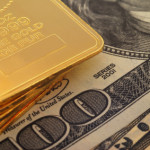Chart analysts are projecting that the latest plunge in gold prices could signal even bigger losses not seen for the past few years. Many foresee gold dropping to $1,100, while one foreign bank analyst believes the yellow metal will dip below $1,000. Gold fell again during the Tuesday trading session by about $10 and stands at $1,373 (at the time of this writing).
Not everyone sees gold dropping that far below. Thailand’s National Economic and Social Development Board (NESDB) secretary general Arkom Tempitayapaisit told Bangkok Post on Tuesday that the drop in gold is only temporary and will stay above the $1,000 mark.
Tempitayapaisit told the Asian news outlet that gold will most likely rebound on speculation that Italy and other European nations might sell their gold reserves in order to pay down their enormous debt loads, fund their government expenditures and maintain credit ratings.
The NEDSB head also noted that a five-year decline in gold prices is quite unlikely to happen because the precious metal is held as both a reserve by central banks and a speculative commodity for investor. The present plummet in gold is because some nations are mulling or in the process of selling their gold reserves for debt repayments, which has been a significant factor in the drop in prices.
The Bank of Thailand maintains gold reserves, but if it sold now then the country would lose money because it acquired at higher prices. Any more selloffs by central banks would contribute to the drop in global gold prices. Tempitayapaisit noted that this would only be for the short-term, however.
Global Gold News reported earlier this month of a World Gold Council report that found Italian officials are considering using the country’s gold reserves as an alternative measure to austerity. It was reported that Cyprus was forced to sell approximately 400 million euros of gold reserves as part of the Troika bailout agreement.
On Tuesday, the United States dollar strengthened, while there has been some speculation that the Federal Reserve will end its quantitative easing initiatives. Fed Chairman Ben Bernanke will deliver testimony at the Joint Economic Committee about the central bank’s economic outlook, while also releasing the FOMC minutes from its recent policy meeting.
Fed critics say either way it’s a lose-lose situation for the markets and a win-win for gold. Experts, such as Peter Schiff, president of Euro Pacific Capital, and finance guru Jim Rogers, argue that if the Fed continues QE then it will just inflate the dollar even more and inject the economy with more heroin and “feeding an addiction,” which will lead to a safe-haven for gold and alternative currencies. If the Fed ends QE then markets will plummet because the Dow Jones relies heavily on cheap money and low interest rates and the fundamentals are unsound.
In reality, though, no one sees the Fed reducing QE anytime soon.
“Unfortunately, no one at the Fed has the honesty and courage to suffer the short-term shock that would accompany any meaningful exit strategy. Withdrawing liquidity and shrinking the Fed’s bloated balance sheet would no doubt bring on a severe contraction in GDP, but the moves would also enable the US economy to form a solid foundation of savings, capital investment, and industrial production upon which a real recovery could be built,” wrote Schiff in 2010.
“By contrast, more stimulus simply magnifies the imbalances, including excessive government spending, too much consumption, inadequate production, and artificially elevated asset prices. After decades of abuse, it’s time for the Fed to take make a dramatic exit, because the US economy can’t take it anymore.”





Leave a Reply